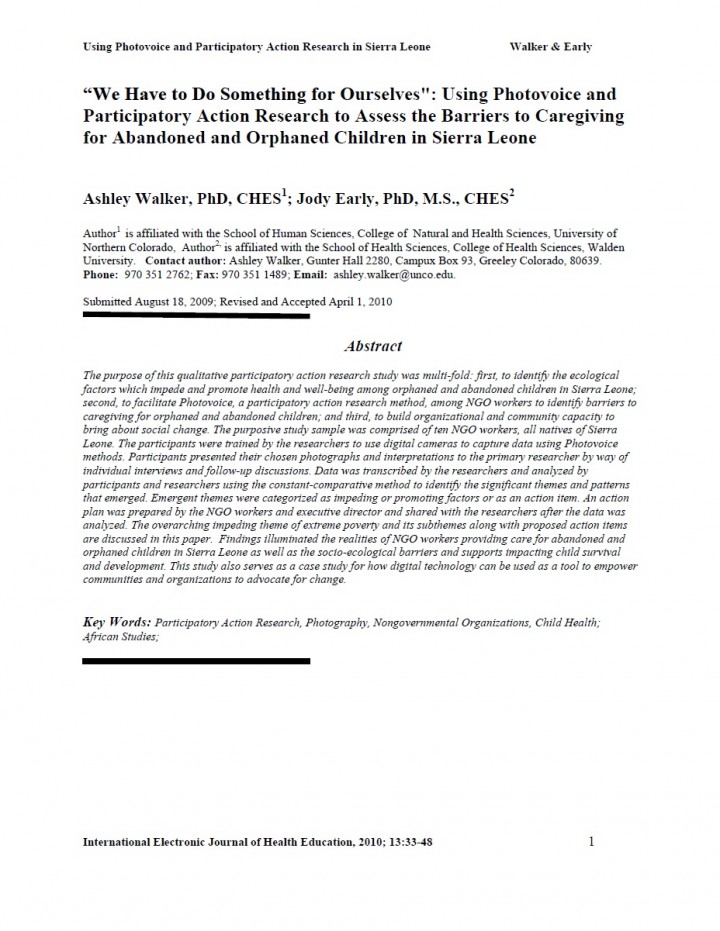“We Have to Do Something for Ourselves": Using Photovoice and Participatory Action Research to Assess the Barriers to Caregiving for Abandoned and Orphaned Children in Sierra Leone
Walker, A., Early, J. (2010)

Published in: 2010
Pages: 16
Publisher:
International Electronic Journal of Health Education
Author:
Walker, A., Early, J.
Uploaded by:
SuSanA Admin
Partner profile:
common upload
642 Views
3 Downloads
The purpose of this qualitative participatory action research study was multi-fold: first, to identify the ecological
factors which impede and promote health and well-being among orphaned and abandoned children in Sierra Leone; second, to facilitate Photovoice, a participatory action research method, among NGO workers to identify barriers to caregiving for orphaned and abandoned children; and third, to build organizational and community capacity to bring about social change. The purposive study sample was comprised of ten NGO workers, all natives of Sierra Leone. The participants were trained by the researchers to use digital cameras to capture data using Photovoice methods. Participants presented their chosen photographs and interpretations to the primary researcher by way of individual interviews and follow-up discussions. Data was transcribed by the researchers and analyzed by participants and researchers using the constant-comparative method to identify the significant themes and patterns that emerged. Emergent themes were categorized as impeding or promoting factors or as an action item. An action plan was prepared by the NGO workers and executive director and shared with the researchers after the data was analyzed. The overarching impeding theme of extreme poverty and its subthemes along with proposed action items are discussed in this paper. Findings illuminated the realities of NGO workers providing care for abandoned and orphaned children in Sierra Leone as well as the socio-ecological barriers and supports impacting child survival and development. This study also serves as a case study for how digital technology can be used as a tool to empower communities and organizations to advocate for change.
Bibliographic information
Walker, A., Early, J. (2010). “We Have to Do Something for Ourselves": Using Photovoice and Participatory Action Research to Assess the Barriers to Caregiving for Abandoned and Orphaned Children in Sierra Leone. International Electronic Journal of Health Education
Filter tags
English Sub-Saharan Africa















